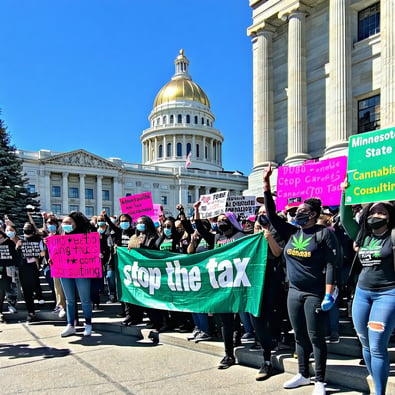Rock Island, Illinois, is moving forward with plans to regulate cannabis dispensaries within city limits. During a recent city council meeting, officials approved the first reading of a proposed ordinance that would bring structure and oversight to the emerging local cannabis market. The ordinance includes key provisions such as limiting the number of dispensary licenses issued and establishing a provisional licensing period before businesses can obtain full licensure.
This development marks a significant moment in Rock Island’s approach to legalized cannabis. While Illinois legalized recreational cannabis in 2020, municipalities retain local authority over how cannabis businesses operate in their communities. Rock Island’s decision to formalize a licensing system demonstrates an intent to balance economic opportunity with community oversight and public safety.
A core component of the ordinance is the cap on dispensary licenses. Although the exact number of allowed licenses has not yet been finalized, the intent is to prevent market oversaturation and allow the city to closely monitor the performance and community impact of each dispensary. This approach is consistent with practices adopted by other Illinois cities aiming to regulate the growth of cannabis businesses in a sustainable and controlled manner.
Another key element of the ordinance is the introduction of a provisional licensing period. Under this system, new dispensary applicants would first be granted a provisional license, which allows them to begin preparations, meet regulatory requirements, and demonstrate compliance with city standards.
City officials say this stepwise approach ensures accountability and provides an opportunity to evaluate businesses before granting them full operational status. The provisional period also allows the city to monitor whether licensees meet security standards, community impact expectations, and operational timelines.
Supporters of the ordinance say it's a responsible and necessary step to ensure the cannabis industry grows in a way that benefits the city while protecting public interests. “We want to encourage investment,” one council member said, “but we also want to do it right.”
The ordinance must go through additional readings and public comment before it is officially adopted. However, the initial approval signals that Rock Island is serious about creating a structured and transparent path for cannabis dispensaries to operate legally and responsibly.
As public opinion continues to shift in favor of legalized cannabis, cities like Rock Island are positioning themselves to welcome this new industry—while maintaining oversight and a focus on community well-being.





